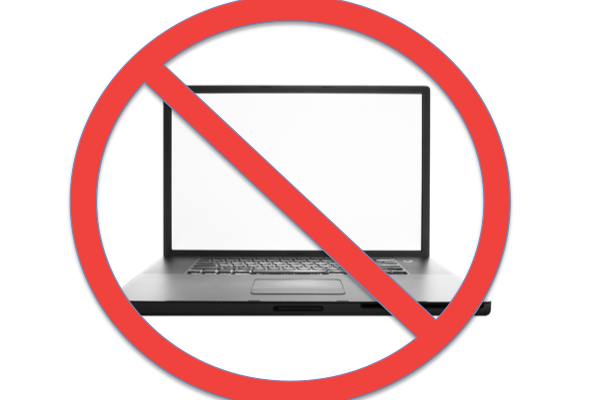Every student at this school has had the same question run through his head at one point or another: “Will laptops ever be allowed in class at this school?”
Many students believe that the main opposition to laptop introduction is the vice principal himself, Mr. Matt Dempsey. However, he may not be as stubborn on the subject as they may think.
“I’m actually not someone who’s absolutely opposed to laptops in a classroom, but there are a lot of negatives to the students, he said. “The main one of these is, of course, an inability to synthesize and distill information as it’s taught. You can transcribe a lecture, and as I always say, writing is learning.”
This is essentially a way of saying with long words that it is far better to learn through writing by hand than to type.
Mr. Dempsey continued, “Note-taking is valuable in and of itself, not just a means to an end. Then you have to take into account the distractions. It becomes a war between teacher and the students to control these distractions, because no matter how advanced the technology is, the students will find a way to thwart it.”
This may seem like the final straw, the one thing that can never be fixed or gotten around. But some schools seem to think that they can control these distractions as much as possible and use school laptops connected to one server that can be monitored by teachers whenever necessary. One school, of course, is none other than our sister school, Mount St. Mary (MSM).
MSM junior Breanna Racher said, “All students buy a laptop, and if they can’t do that then they receive financial aid. We use them in just about every class. We all have access to Google documents, slides, and other drive applications, and most teachers post their homework online.”
This is not something unheard of at our school, as teachers such as Mr. Matt Morris and Mr. Paul Lincicome post class notes and slides on the “interwebs” for students. But what about the aforementioned distractions?
“At my school we have a lot of websites blocked like Netflix, Spotify, Hulu, and other ‘inappropriate’ websites. A lot of students used to watch Netflix during class a few years ago when it wasn’t blocked on the Wi-Fi but now that has been fixed,” said Racher.
You would think that would highly discourage the girls from trying to watch movies in class, but this is not quite the case.
“A lot of girls try to watch movies on illegal movie websites. Most of them are blocked, but if they’re not, then they get viruses on their computers and have to take them to tech support. Our tech guy can see all that we browse so he can see if we are doing stuff like that,” said Racher.
Untrustworthy students are not the only problem, however. Racher said, “The computers don’t stay connected well [to the Wi-Fi], so if you move to a different class, you often have to restart your laptop to connect to the Wi-Fi again. My sophomore year, a student brought her personal laptop, connected to the Wi-Fi, and brought a whole lot of viruses. The school had really terrible Wi-Fi for the last two months of the school year, so over the summer the entire system had to be rebooted.”
That may seem like a lot of disadvantages, and some that may even outweigh the advantages, so maybe laptops won’t be introduced to Catholic High.
One other school serves as a candidate to change Mr. Dempsey’s mind: Pulaski Academy (P.A.)
P.A. sophomore Benjamin Hughes said, “Phones and laptops are generally allowed as long as they’re being used for class. It differs depending on the teacher. Some make you leave your electronics by the door, and some will let you keep them in your backpack.”
This may sound quite lenient at first, but there is a catch.
“If your phone goes off too much or the teacher catches you using it, they’ll take it and give it to the office, where you get it back at the end of the day. That happens twice, and you get detention.”
Some schools seem more advanced technologically then we are, and if we are to keep with the times, then new rules will follow.
Students with disabilities may be allowed to use special tablets to take notes in class rather than the standard pen and paper, and some might hope that this allowance may extend to students without disabilities in the future.
Mr. Dempsey admitted that “tablets are considered as an addition rather often, and anything is possible. We need to find a point where the value of the electronic device exceeds both hassle and problems.”










